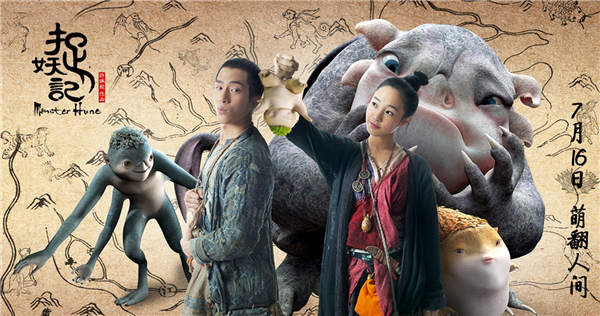 |
|
Monster Hunt, starring actor Jing Boran and actress Bai Baihe, is China's highest-grossing film last year. [Photo provided to China Daily] |
Still, some progress was achieved last year. According to the The Report on Chinese Film Art, fantasy films became a popular genre.
"This type of film used to be a small part of Chinese cinema," says Yin Hong, a cinema professor at Tsinghua University. "Its appearance in large numbers represents younger filmmakers' imaginations. They are able to win teen audiences in the country."
The report also says that more films are inspired by grassroots urbanites and reflect the realities of modern young people.
Yin also feels encouraged to see art-house films, which seldom had the chance to entertain mainstream moviegoers in the past, begin to win seats at theaters and even make some money.
Speaking of creativity, Lu Shaoyang, a professor at Peking University and an author of the two reports, says: "The atmosphere for creativity is less restricted today. So people are more confident about bringing capital to the industry."
Lu also talks about a hot market, which is often labeled as "overly commercialized".
"When the strength of investors is overwhelming, we have to be cautious-how can we protect a filmmaker's fragile-yet-good idea from being destroyed by market pressures?" he says.
Liu Fan, a researcher at the Chinese National Academy of Arts, says the loosening of film regulations in China will create more opportunities for filmmakers in the future.
"Many crime thrillers, for example, which are usually considered to be sensitive, passed regulation in 2015, and won commercial success via deep explorations of human nature," he says. "Perhaps, more genres will be nurtured in this atmosphere."
He doesn't consider certain genres to be the market fix anymore.
"Today's Chinese cinema welcomes different types of films. If your film has quality and marketing, you will be recognized," he says.
Contact the writer at wangkaihao@chinadaily.com.cn